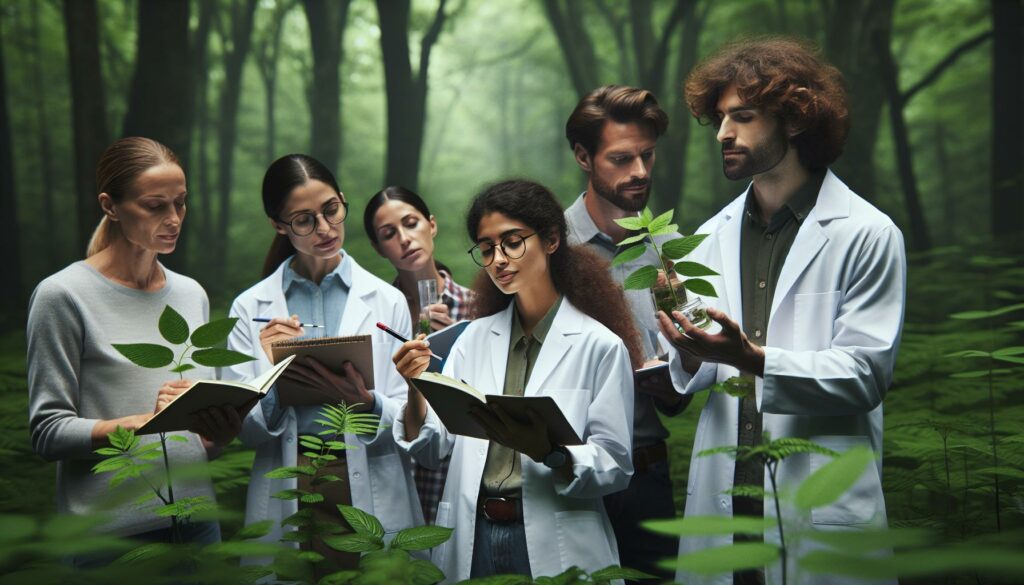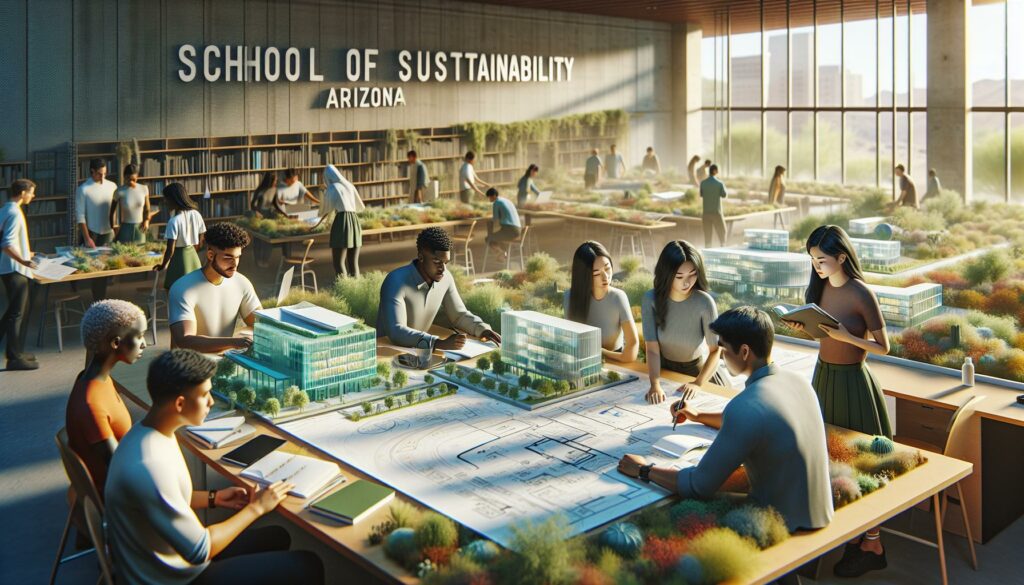Sustainability definition biology isn’t just a buzzword tossed around at eco-friendly coffee shops. It’s a vital concept that intertwines with the very fabric of life on Earth. Imagine a world where nature and human activity coexist harmoniously—sounds dreamy, right? Well, that dream hinges on understanding what sustainability really means in the biological realm.
Sustainability Definition Biology
Sustainability plays a vital role in biology, influencing ecosystems and human impacts on the environment. This concept extends beyond terminology, emphasizing the balance between nature and human activity.
Historical Context of Sustainability
Prior to the 20th century, sustainability concepts were often implicit in agricultural practices. Farming techniques relied on maintaining soil fertility and preserving local biodiversity. The 1970s marked a turning point, with environmental movements advocating for increased awareness of ecological limits. Growing concerns about pollution and resource depletion prompted calls for sustainable practices in various sectors. By the late 20th century, sustainability became an essential part of scientific discourse. Current discussions reflect a deeper understanding of interdependence between species and habitats in maintaining ecological health.
Importance of Sustainability Definition Biology Studies
Sustainability holds significant importance in biological studies for its impact on research methodologies and conservation efforts. Understanding ecological interactions allows researchers to develop strategies for preserving biodiversity. Applied sustainability practices initiate discussions about biodegradable materials and renewable resources. Integrating sustainability into biological research fosters innovative solutions to pressing environmental challenges. Prioritizing sustainability also enhances public awareness of ecological issues, thereby promoting more responsible behaviors and policies. Ultimately, biological studies rooted in sustainability contribute to healthier ecosystems and a more sustainable future for all.
Key Concepts of Sustainability Definition Biology

Sustainability in biology incorporates key concepts essential for maintaining ecological integrity. Understanding terms like ecological balance and resource conservation clarifies its significance.
Ecological Balance
Ecological balance refers to the equilibrium between organisms and their environment. A stable ecosystem relies on interactions among plants, animals, and microorganisms. For instance, predator-prey relationships maintain population size, preventing overpopulation and ensuring resource availability. Plant life contributes oxygen, forming a crucial support system for animal species. Disruptions, such as habitat destruction, lead to biodiversity loss and ecosystem instability. Researchers stress the importance of maintaining these equilibria to support life processes and enhance resilience against environmental changes. A healthy ecosystem fosters adaptability, ensuring survival through fluctuations in climate and human activity.
Resource Conservation
Resource conservation focuses on the prudent use of natural resources. This approach aims to minimize waste and optimize resource efficiency. For example, practices like recycling and sustainable agriculture help preserve essential elements such as water and soil. Awareness of resource limitations drives innovations in renewable energy and sustainable materials. Through responsible consumption and management, both human beings and ecosystems benefit. Protecting resources not only supports biodiversity but also enhances the quality of life for current and future generations. By adopting conservation methods, society actively participates in sustaining biological diversity and promoting ecological health.
Applications of Sustainability in Biological Research

Sustainability plays a vital role in shaping biological research methodologies and conservation strategies. Innovative approaches focus on integrating ecological principles into studies, fostering better environmental stewardship.
Sustainable Practices in Conservation
Sustainable practices in conservation prioritize the protection and restoration of ecosystems. These practices include habitat restoration techniques, which aim to rehabilitate degraded environments. Conservation programs often implement sustainable resource management strategies that minimize human impact. Using community-based approaches enhances local involvement in preserving biodiversity and natural habitats. Integrating technology, such as remote sensing, aids in monitoring ecosystems effectively. Sustainable agriculture practices also support biodiversity by reducing chemical inputs and enhancing soil health. Overall, these practices ensure that conservation efforts remain effective and resilient against environmental pressures.
Impact on Biodiversity
Sustainability significantly impacts biodiversity by promoting the preservation of genetic diversity within ecosystems. Healthy ecosystems maintain varied species, which enhances resilience to climate change and disease. Sustainable land-use practices help retain critical habitats for various organisms, minimizing habitat loss. Pollinator habitats benefit from sustainable farming methods that reduce pesticide use. Furthermore, protecting and managing natural reserves increase the likelihood of species survival and reproduction. Biodiversity fosters ecosystem services, such as clean air and water, benefiting both wildlife and humans. Emphasizing sustainability in biological research leads to more comprehensive conservation outcomes and healthier ecosystems.
Challenges in Defining Sustainability in Biology

Defining sustainability in biology poses several challenges, particularly due to differing viewpoints and measurement complexities.
Conflicting Perspectives
Disparate opinions exist regarding what constitutes sustainability. Ecologists often emphasize the intrinsic value of biodiversity, prioritizing ecological stability over human needs. Conversely, economic perspectives focus on resource management aimed at human benefit, sometimes neglecting ecological considerations. Different cultural backgrounds further complicate the definition, as various societies prioritize sustainability based on local traditions and needs. Furthermore, political interests can skew sustainability discussions, aligning them with economic growth rather than ecological integrity. This multiplicity of views makes establishing a universally accepted definition challenging and adds layers to discussions about biological sustainability.
Measurement Difficulties
Quantifying sustainability in biological contexts proves difficult due to the complexity of ecological interactions. Numerous indicators exist, such as biodiversity indices and ecosystem functions; however, they often fail to capture the full scope of sustainability. Temporal variability complicates assessments, as ecosystems change over time, influenced by factors like climate and human activity. Different scales of measurement further exacerbate confusion, with local studies not easily generalizable to global contexts. Additionally, the lack of standardized metrics means comparing sustainability efforts across various domains remains challenging. Consequently, these measurement difficulties hinder clear communication about sustainability in biological research.
Promote Responsible Resource Management
Sustainability in biology is a multifaceted concept that plays a vital role in maintaining ecological balance and promoting responsible resource management. By recognizing the intricate relationships within ecosystems, individuals and communities can contribute to preserving biodiversity and fostering healthier environments. The ongoing integration of sustainability principles into biological research not only enhances conservation efforts but also encourages innovative solutions to pressing environmental challenges. As society navigates the complexities of sustainability, embracing diverse perspectives will be crucial in shaping effective strategies for a sustainable future. Ultimately, a collective commitment to understanding and implementing sustainable practices can lead to a harmonious coexistence between humans and the natural world.


